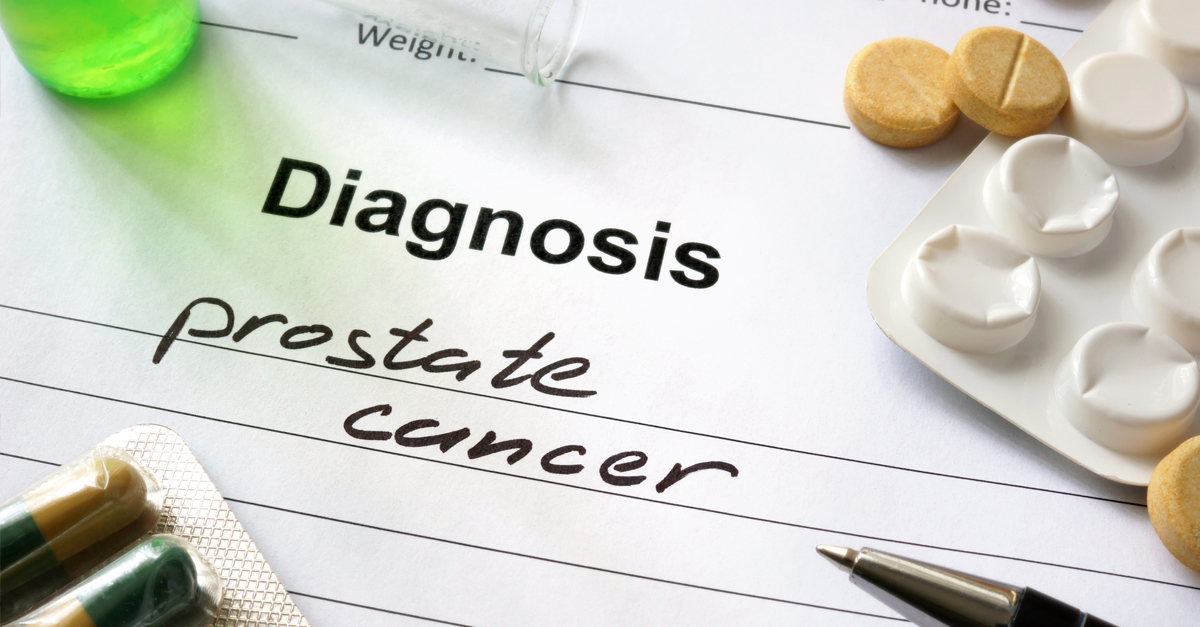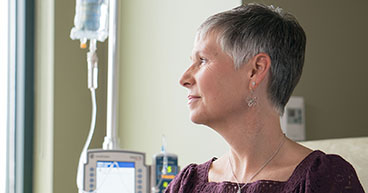
Most people with cancer receive their diagnosis well past the age when they are considering having children. The average age of a person when they receive a cancer diagnosis is 66. Still, nearly 10 percent of all patients—more than 150,000 a year—are still young enough to have children at the time of their diagnosis. Many of those patients will have a cancer or receive treatments that may affect their fertility.
Being told you have cancer and you may lose your fertility from treatment may be devastating. Fortunately, there are a variety of options to preserve fertility for individuals affected by cancer who wish to have children.
How does cancer treatment affect fertility?
The likelihood of reproductive damage from cancer treatment depends on several factors, including your age and fertility status at diagnosis, gender, cancer type and stage, and the treatment type, length and dosage.
For men, cancer treatment may affect the normal quantity, speed and shape of sperm. For women, cancer treatment may damage eggs and reproductive organs or affect the body’s hormonal balance.
The following are some ways cancer may affect fertility:
Cancer itself: Some men with cancers like testicular cancer and Hodgkin lymphoma become infertile from direct effects of the tumor.
Surgery: Surgery to parts of the reproductive system (e.g., removal of all or part of a woman’s ovaries, uterus or cervix; surgery to a man’s testicles or prostate) may cause infertility. Sometimes surgery may cause scarring in the fallopian tubes, which may prevent eggs from traveling to meet sperm. Some other types of surgery for men (e.g., removal of lymph nodes in the pelvis) may damage nerves, causing problems with ejaculation.
Chemotherapy: Depending on the type and dosage of drugs used, chemotherapy may damage or destroy a woman’s eggs or a man’s sperm, reduce sperm production or limit sperm mobility. It may also affect a woman’s menstrual cycle, causing a stop in ovulation or early menopause.
Radiation therapy: Depending on the dosage and location, radiation therapy to the pelvic region may damage or destroy a woman’s eggs and cause early menopause, or damage the uterus and make it difficult to maintain a pregnancy. For men, radiation to or near the testicles may harm sperm production. Radiation to the brain (e.g., pituitary gland) may affect fertility in women and men by interfering with normal hormone production, affecting egg supply or sperm count.
Other treatments: A stem cell transplant may affect fertility because the procedure generally involves high doses of chemotherapy and sometimes radiation therapy. Hormone therapies may sometimes affect fertility, but it is usually temporary.
Fertility-preserving options
If you want to preserve your options to have a baby in the future, there are a range of fertility-preserving options. They include:
- Sperm banks
- Egg or embryo freezing
- Hormone therapy
- Donor eggs or embryos
- Fertility-sparing surgery
- Surrogacy
Options to preserve fertility may not be appropriate for everyone, and there may be other options available that are not listed. Some options may be time consuming and expensive, and may pose other challenges for people with cancer, such as delaying cancer treatment or risking tumor growth. It’s important to discuss all of these issues with your doctor.
Starting a family after cancer treatment
Many cancer survivors are able to conceive naturally after treatment. Men who lose sperm function as a result of cancer treatment, often eventually regain fertility. However, it may be more difficult for women.
Women may be advised to wait for six months or longer after treatment ends before trying to conceive, as eggs may become damaged from exposure to radiation and/or chemotherapy. Some doctors may recommend waiting up to two years before trying to get pregnant to make sure the cancer doesn’t recur. Also, women often need to be closely monitored during pregnancy.
Tips for addressing fertility concerns during cancer care
Know you're not alone. Being told you have cancer and the treatment you need may affect your ability to have a child may be devastating. It’s important to understand you are not alone. There are other people out there who may support you if you let them.
Ask yourself questions. If you're at risk for infertility, ask yourself questions to better understand your feelings about parenthood. Have you always wanted to have children? Are you unsure if you will want a child, but at least want the option? How would you feel about having a child that isn’t biologically related to you? Are you open to using donor sperm or donor embryos?
Be upfront with your doctor. If possible, talk with your doctor about fertility concerns before treatment begins. Ask how treatment is likely to affect your fertility. Find out about options to protect your fertility before and during treatment. Ask about whether anything can be done to lessen the effects of treatment on your fertility. An open discussion with your doctor will help you better anticipate what to expect.
Communicate with your partner. If you're in a relationship, you and your partner may or may not be ready to have a family yet. Regardless of which stage of family planning you're in, open communication is important. Let your partner know how you feel about having children and ask how your partner feels.
Explore your fertility-preserving options. Learn about your fertility-preserving options before treatment, if possible. To evaluate your options, consider the risks and successes of each. Currently, the most established options are sperm banking for men and embryo freezing for women. Learning about all the options available to you may help you feel better about your choices.
Protect what's important to you. If you have always wanted to have children, don't let others minimize this desire, including your health care team. Sometimes cancer-related infertility is not discussed as often as it should be. The disease takes priority, which is understandable and necessary. However, you still have a right to protect your ability to have children in the future.
Consider the challenges. When researching your options, keep in mind that many are costly and may not be covered by your health insurance. Also, some options are time-consuming, and you may not be able to postpone treatment as long as you need to. Don't be afraid to get a second opinion before making important decisions.
Seek out resources. Ask your doctor about available fertility resources and referrals, such as reproductive endocrinologists, sperm banks, financial assistance, and adoption agencies. Talk to a fertility counselor or join a support group.
Learn about pregnancy risks. Talk with your doctor about when is a safe time to begin a pregnancy. Your doctor may advise you to avoid pregnancy during cancer treatment, as some treatments may cause birth defects or harm to the developing fetus. Also, you may need to wait for a period of time after treatment to avoid miscarriage or premature birth.
Don't give up. If you've always dreamed of having a child and you've already finished treatment without undergoing fertility preservation procedures, it doesn't mean you still can't have children. If you can’t conceive naturally, you may decide to pursue surrogacy or adoption. Many people choose adoption regardless of whether or not they can have biological children.


